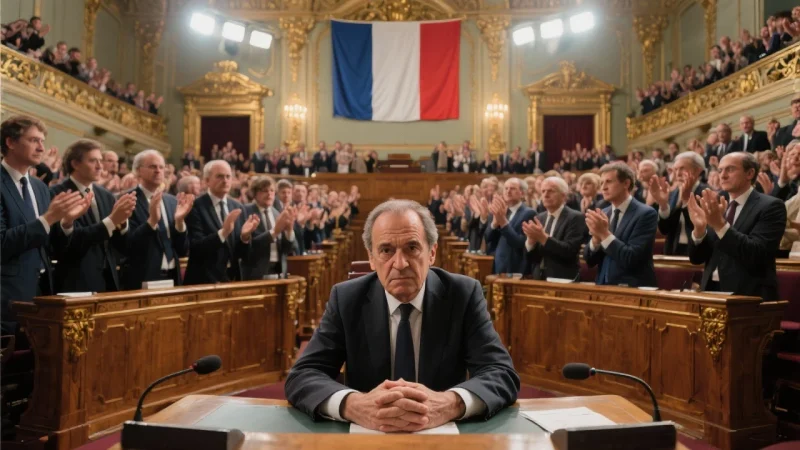A gamble gone wrong
France is once again staring at political paralysis after lawmakers overwhelmingly ousted Prime Minister François Bayrou on Monday in a no-confidence vote. Bayrou, a 74-year-old centrist and longtime ally of President Emmanuel Macron, lost the showdown by 364 to 194, a staggering margin that leaves Macron scrambling to appoint yet another head of government in less than a year. His dramatic decision to call the vote—aimed at pushing through a €44 billion austerity plan—backfired as both left and right factions seized the opportunity to unseat him.

The result plunges Europe’s second-largest economy into renewed turmoil, with Macron forced to find his fourth prime minister in twelve months. Bayrou follows Michel Barnier, who was toppled the previous December, and Gabriel Attal, who resigned earlier in 2024, into the ranks of Macron’s short-lived premiers.
France’s debt dilemma
At the heart of this collapse is the budget crisis Macron’s government cannot seem to tame. Bayrou’s proposed cuts—scrapping two public holidays, freezing welfare spending, and reducing pensions—were meant to chip away at France’s deficit, which sits at 5.8% of GDP, nearly double the EU limit. Public debt now hovers above 114% of GDP, and rising borrowing costs have spooked bond markets, with French yields surpassing those of Spain and Greece for the first time in years.
Bayrou had warned lawmakers that “debt is submerging us, like a silent enemy.” But his warnings of fiscal discipline collided with a French political culture—and electorate—wary of austerity. As he put it in his final plea: “You have the power to overthrow the government. You do not have the power to erase reality.”
What comes next for Macron?
The Élysée confirmed Macron will name a new prime minister within days. Potential frontrunners include Defense Minister Sébastien Lecornu and Justice Minister Gérald Darmanin. Yet whoever steps into Matignon faces the same near-impossible task: passing a budget in a fragmented parliament where both left and far-right parties have promised to strike down any centrist pick.
Marine Le Pen, whose National Rally now leads in opinion polls, has already demanded fresh elections, confident her bloc could emerge dominant. Meanwhile, Jean-Luc Mélenchon and the radical left have called on Macron himself to resign. But the president insists he will remain in office until 2027, even if it means leading a country through domestic gridlock while governing largely by presidential decree abroad.
The bigger picture: gridlock as a new normal
France’s political instability is not just a domestic drama—it resonates across Europe. With wars raging in Ukraine and the Middle East, and a resurgent NATO led by a newly re-elected Donald Trump, France’s inability to produce a stable government weakens Europe’s strategic hand. Germany faces its own economic slowdown, leaving the EU’s power engine sputtering.
Domestically, public anger is boiling over. Leftist movements have already announced a “Bloquons Tout” (“Block Everything”) protest for Wednesday, while trade unions are mobilizing nationwide strikes set for later this month Le Monde. The specter of the gilets jaunes returns, this time amid even deeper fiscal strain.
Whether Macron gambles on fresh elections or tries to wring another premier out of his fractured coalition, France looks trapped in a cycle of short-lived governments and long-term malaise. For many, the only certainty is that Bayrou’s ouster is not the end of the crisis, but the beginning of a prolonged fight over France’s political future.
